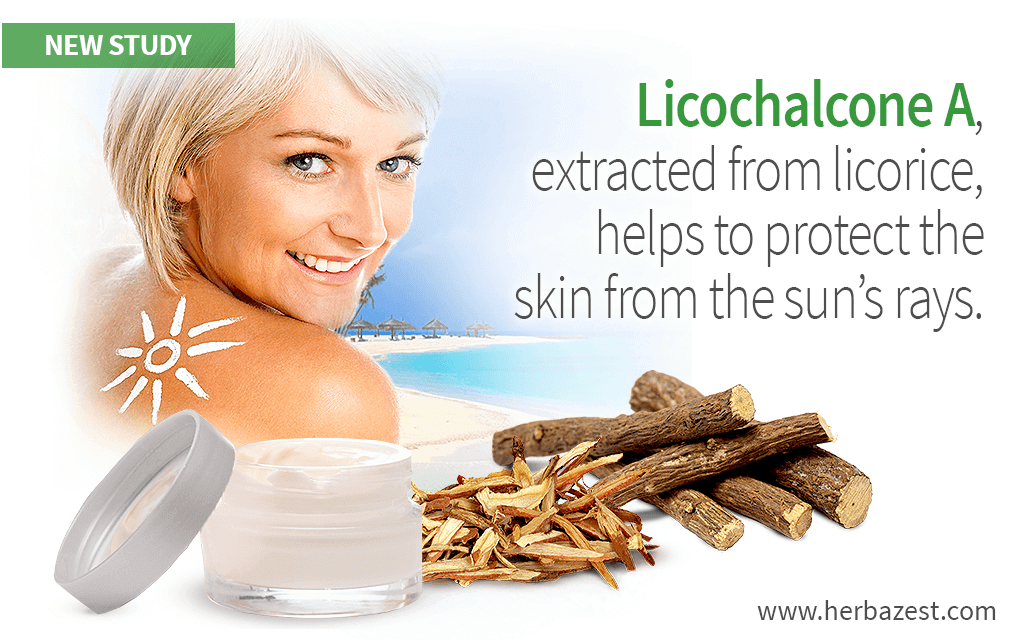The skin is the body's largest, and - in light of its incredible ability to keep the good things in and the bad things out - perhaps most underappreciated organ. One of its many functions is to shield the body from environmental stressors, such as UV radiation. Certain skin cells have developed a complex defense system using antioxidants, and it has been found that a main component found in two known licorice species - common licorice (Glycyrrhiza glabra) and Chinese licorice (Glycyrrhiza inflata) - may support this natural defense system, possibly protecting the skin even more effectively than SPF 50+ sunscreens.
The Study
Researchers covered all bases by examining the effects of licochalcone A, an active compound in licorice, both in vitro and in vivo - in other words, on skin cells separated from the body, and directly on human volunteers. In the first test, they treated human skin cells in a test tube with licochalcone A and then exposed them to simulated solar light, just like sun exposure. In the latter experiment, healthy volunteers were given a licochalcone A-rich lotion to apply on their inner forearms for two weeks.
The Results
The human skin cells of the in vitro test that were pretreated with licochalcone A were shown to have higher amounts of the natural antioxidants the body produces to protect against UV rays. Further, these same cells also had fewer harmful radicals present than cells that had not been treated with the licorice extract. The licochalcone A-rich lotion that volunteers of the in vivo experiment spread on their arms was also shown to protect the skin from UV damage.
What This Means
Even sunscreens with a sun protection factor (SPF) of 50 or higher still let in 2% of damage-causing UV rays. This plant-based extract helps to protect from within by fortifying the body's own natural defense - not only producing a deeper effect, but doing so more organically. The exciting results of studies on licochalcone A could mean more effective sunscreen, and thus better protection from the harmful effects of UV light.
Sources
- Experimental Dermatology, Licochalcone A activates Nrf2 in vitro and contributes to licorice extract-induced lowered cutaneous oxidative stress in vivo, 2015




